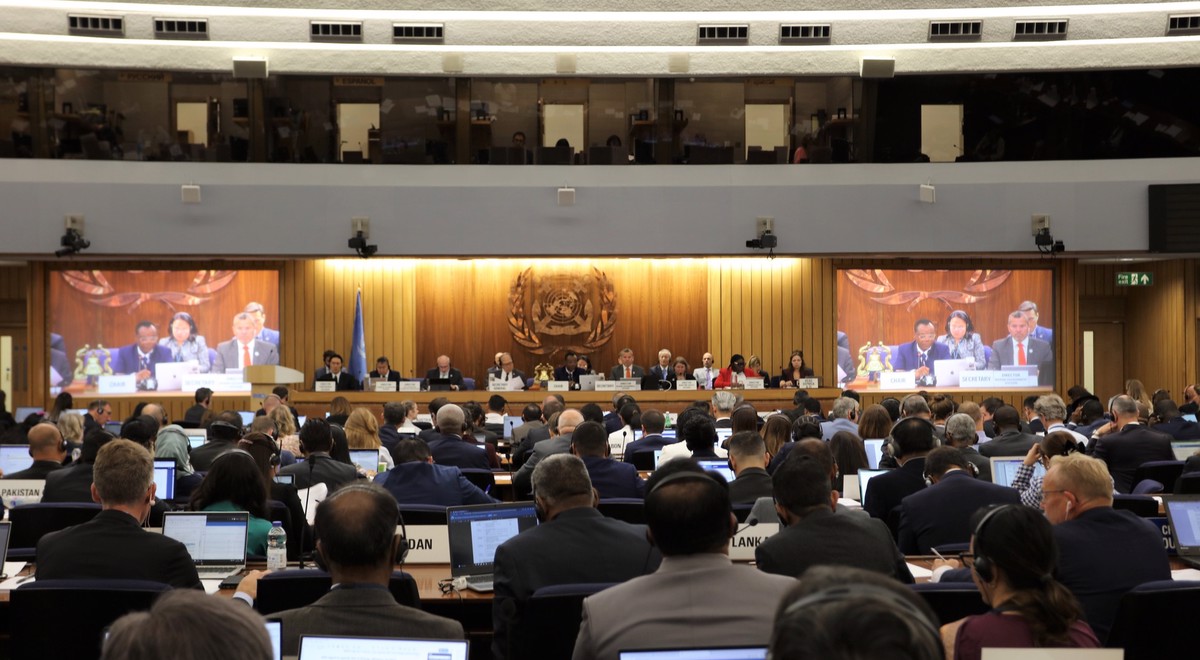MEPC 80: GHG reduction targets ‘meaningless aspiration’ without mid-term measures – ICS
Regulatory clarity is essential for fuel suppliers and shipping companies to ramp up supply and uptake of low- and zero emission fuels and technologies, the International Chamber of Shipping (ICS) tells ENGINE.
 PHOTO: Opening of the 80th Session of the Marine Environment Protection Committee (MEPC) at IMO HQ this week. IMO
PHOTO: Opening of the 80th Session of the Marine Environment Protection Committee (MEPC) at IMO HQ this week. IMO
ICS, which represents about 80% of the world’s commercial fleet, backs a net zero target for 2050 that will “send a strong signal to energy producers and marine fuel suppliers to invest so that we can meet the goals,” says ICS director of strategy and communication Stuart Neil.
“Setting a direction of travel is important, but without the tools to get there, it becomes a meaningless aspiration,” Neil says.
Neil stresses that measures to reach this net zero by 2050 target and other interim targets should be laid out. An economic “fund and reward” measure (proposed by ICS) could be complemented by a technical global GHG Fuel Standard measure (first proposed by the EU).
The ICS’ envisioned fund and reward system will set a levy on all the CO2 emissions emitted by ships. Revenues from this levy will go towards a fund which will reward uptake of low- and zero-emission fuels among shipowners. It can also “provide billions of dollars of funding annually for alternative fuel production and bunkering infrastructure in developing countries,” ICS said in February in an effort to address a major point of contention: that developed nations generally have a greater ability to pay for their energy transitions, and that several developing nations will need help with theirs.
In the IMO’s current draft GHG strategy there seems to be agreement between member states that global shipping emissions should peak “as soon as possible”. But the wording on exactly when that should be differs between contesting versions, from “by 2050 at the latest” to “by or around mid-century, mindful of different national circumstances”.
There is even more discord on whether there should be interim targets, and if so what these should be. One camp, which includes ICS, wants to up the level of ambition not just on the 2050 target, but also on 2030 and 2040 targets to align them with the cross-sector Paris Agreement goal of limiting global warming to 1.5C above pre-industrial levels.
The IMO is expected to adopt a revised GHG strategy tomorrow.
By Erik Hoffmann
Please get in touch with comments or additional info to news@engine.online






